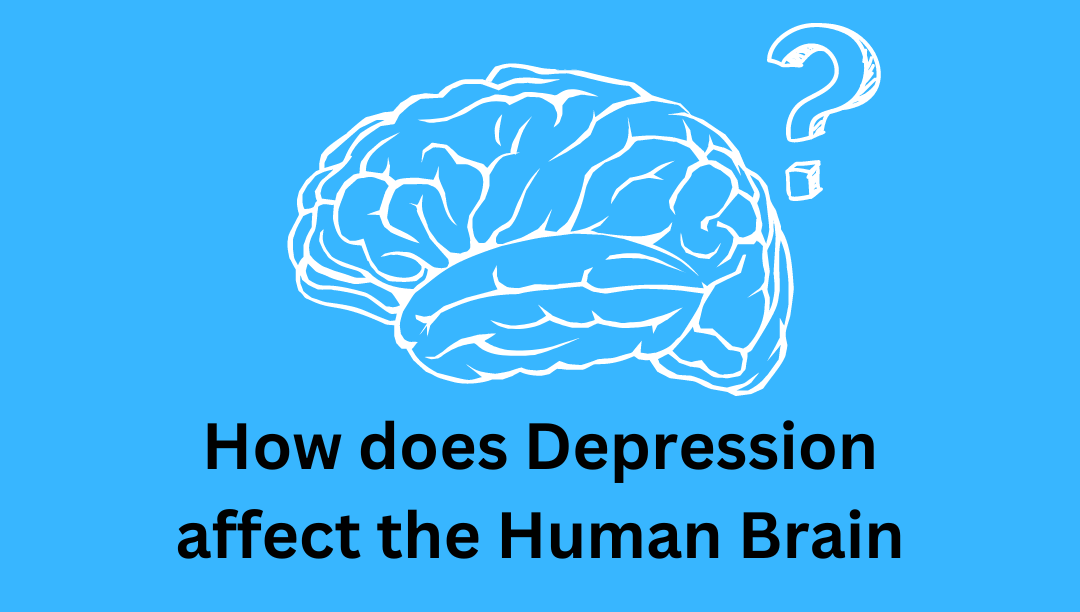How does depression affect the human brain is a very intriguing question and the answers are really surprising. Depression is probably one of the most common and well-known mental illness in the world. Nearly everyone is quite familiar with the term ‘depression’. Although, one might assume depression to just be sadness, and in some cases it is indeed sadness. However, it is important to know that depression can be so much more than just sadness. There’s tons and tons of information the general public is unaware of regarding this seemingly simple mental illness.
The purpose of this article is to understand depression better and review it’s long term effects on the brain of the person affected by it. But first let’s understand this mental illness a little better.
What is Depression?
Depressive disorder, commonly referred to as depression, is one of the prevalent mental health conditions affecting individuals globally. It manifests through persistent feelings of profound sadness, emptiness, or loss of interest in activities that were once enjoyable over an extended duration. This mental health condition significantly impacts an individual’s daily functioning and overall quality of life. It should be distinguished from normal mood fluctuations that individuals experience in response to life’s challenges and stresses.
Many symptoms, such as changes in appetite, sleep difficulties, exhaustion, trouble focusing, and feelings of worthlessness, can indicate depression. Additionally, those who are depressed may struggle with hopelessness, low self-esteem, and negative ideas that cloud their judgment of the world. How does depression affect the human brain is the question most people would ask themselves.
The importance of recognizing and addressing depression lies in its potential to exacerbate, affecting not only the individual’s mental well-being but also their physical health. Left untreated, depression can lead to a host of challenges, including impaired relationships, diminished work performance, and an increased risk of suicide. It is essential for individuals experiencing symptoms of depression to seek professional help and support from mental health professionals to facilitate effective management and recovery.
Moreover, the stigma associated with mental health conditions, such as depression, frequently prevents people from getting the treatment they need. We can establish a secure atmosphere that welcomes candid discussions about mental health issues by promoting an understanding and compassionate culture. In order to support those suffering from depression and to advance general well-being and mental health in our communities, it is imperative that we raise awareness and provide early intervention and access to mental health resources.
Symptoms
Now that the mental illness is explained. Let’s review some of the symptoms of depression:
- Constant or persistent feelings of sadness and melancholy
- Loss of interest in activities which were usually enjoyed previously
- Loss of appetite or changes in weight
- Increase of appetite
- Always feeling fatigued and decrease of energy
- Insomniac tendencies or oversleeping
- Not having the energy to do simple or mundane tasks. For example, not being able to take care of your hygiene, not getting out of bed which is also known as bed rotting
- Suicidal tendencies or recurrent thoughts of death
- Physical aches and pains
- Irritability, pessimism or frustration
- Difficulty thinking clearly or quickly
How does depression affect the human brain?
Depression is more than feeling down. It may physically change your brain. So, one may ask: How does depression affect the brain?
The state of depression can, first of all, affect the size of the brain.
The areas and extent of the effects are up for discussion. There is mounting evidence that depression causes numerous areas of the brain to shrink. In particular, gray matter volume (GMV) decreases in several regions. There are a lot of brain cells in that tissue. Those with severe symptoms of depression who experience regular or persistent depression appear to have a larger GMV loss.
Prefrontal cortex- This area plays a role in your higher-level thinking and planning.
Hippocampus- It’s a crucial area of your brain for memory and learning. It is sensitive to stress hormones and has connections to other emotional regulation regions of your brain. It is hence susceptible to depression.
Researches also suggest that Thalamus, Caudate nucleus and Insula of the brain visibly get smaller.
Individuals who are grappling with depression often encounter a myriad of intricate changes within their brain. This can manifest as reductions in gray matter, disruptions in neurotransmitter functionality, as well as incidents of inflammation.
These changes show how complicated depression may be, as well as how much of an impact it can have on the physiological makeup and operation of the brain. Moreover, depression has cognitive effects that go beyond these modifications to the brain.
Many individuals with depression also report difficulties with memory retention and recall, which can further exacerbate the challenges they face in their daily lives. These memory issues contribute to the overall cognitive burden experienced by those struggling with depression, potentially affecting various aspects of their daily functioning and overall well-being.
Through comprehension and identification of these associations between depression and alterations in the brain, it may be possible to create more focused and efficient interventions that tackle the mental and affective facets of this intricate illness.
